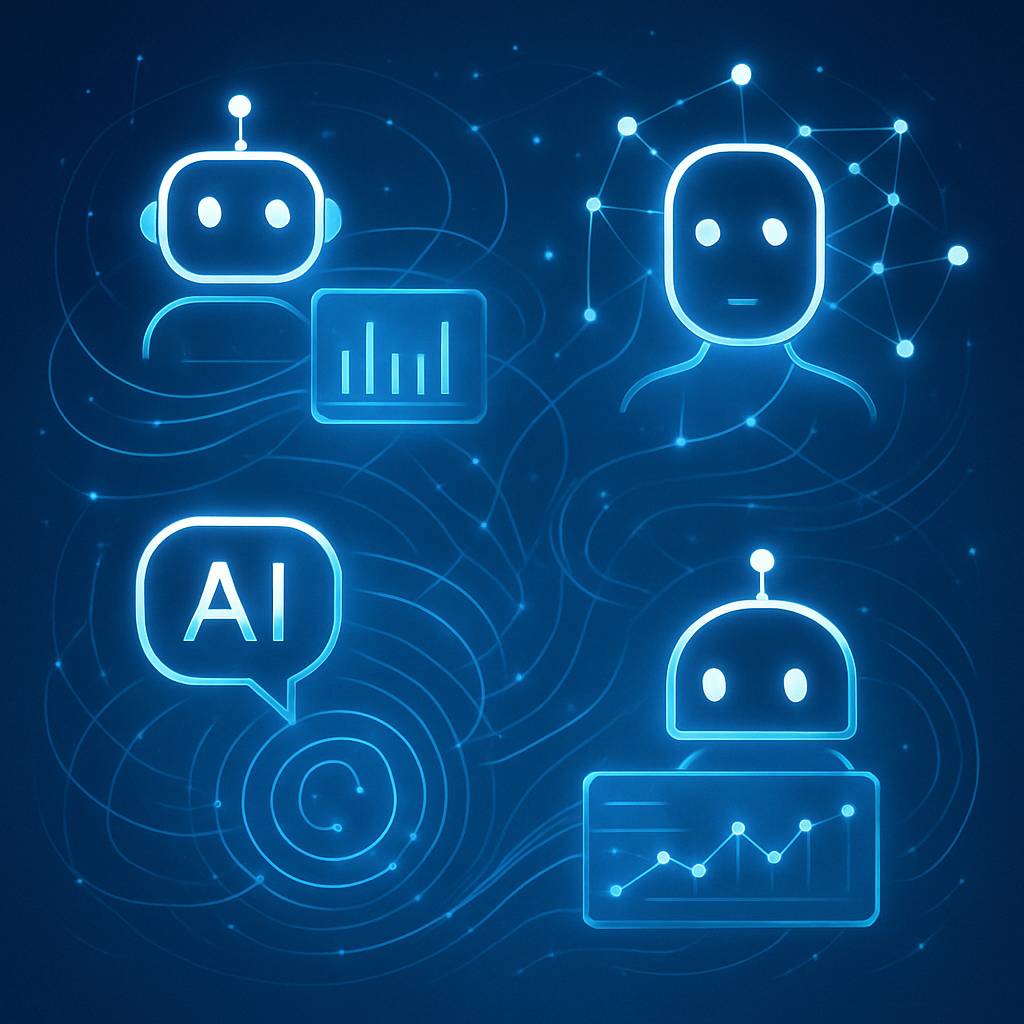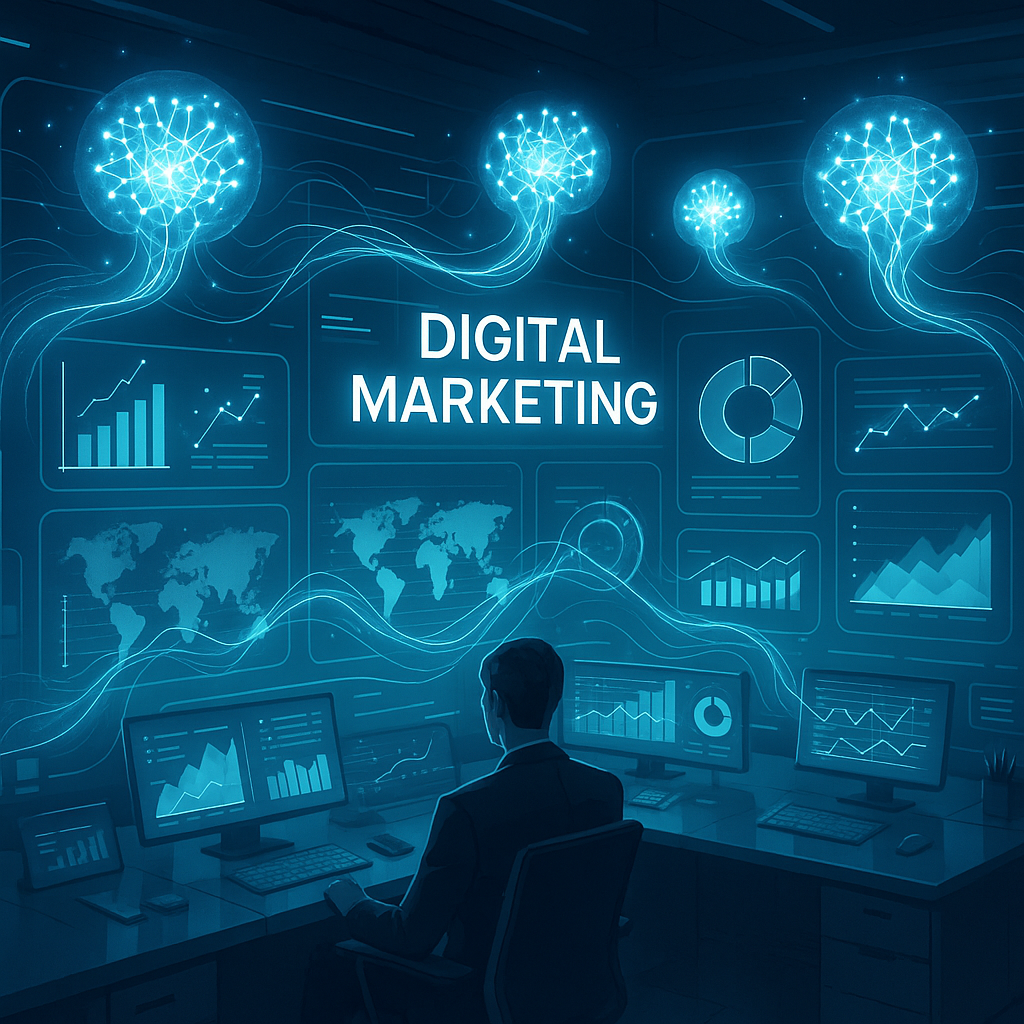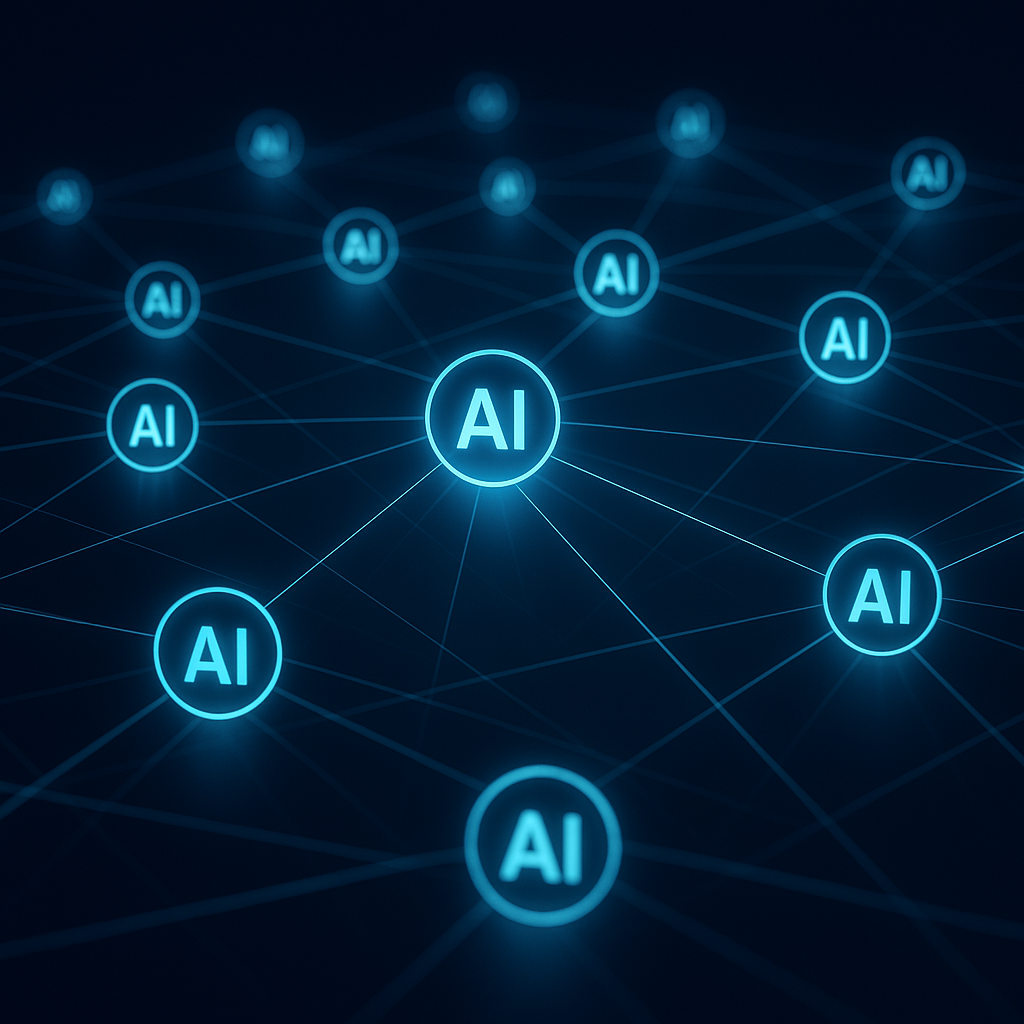
Exploring Key Examples of Agents and Computer Agents in AI
Understanding Agents in artificial Intelligence
In artificial intelligence (AI), an agent is a system that perceives its environment through sensors and acts upon that environment using actuators to achieve specific goals. Agents can operate autonomously, make decisions, and adapt to changing conditions, which positions them at the heart of AI’s expansive capabilities.
The concept of agents is foundational to AI, serving as the architecture upon which much of AI’s versatility is built. Agents may range from simple reactive systems to complex entities capable of learning and reasoning.
Types of Agents in Artificial Intelligence
AI agents come in diverse forms, classified by their complexity and interaction style:
Simple Reflex Agents: These respond directly to percepts without considering the history, using condition-action rules. For example, a thermostat adjusts temperature based on current measurements.
Model-Based Reflex Agents: These maintain an internal state to reflect the world beyond immediate percepts. Autonomous vacuum cleaners often use such agents to navigate rooms effectively.
Goal-Based Agents: Acting to achieve specified goals, these agents evaluate actions based on their outcomes. Pathfinding in GPS navigation systems exemplifies this kind.
Utility-Based Agents: These maximize a utility function to choose the best actions among alternatives, balancing trade-offs. Financial trading bots often rely on utility-based decision making.
Learning Agents: Capable of improving performance through experience, these agents adapt over time — like personalized recommendation engines on streaming platforms.
Exploring Computer Agents in AI
Computer agents in AI refer specifically to software programs that perform tasks on behalf of users or other programs. Unlike physical robots, these agents perform actions in a digital or computational environment.
They are designed to be autonomous, adaptive, and responsive, which empowers them to handle complex problems like data analysis, user interaction, or system monitoring without manual intervention.
Examples of Computer Agents in AI
Intelligent Personal Assistants: Agents like Siri, Alexa, and Google Assistant interact naturally with users, providing answers, setting reminders, or controlling smart devices.
Web Crawlers: Autonomous agents that browse the internet and index information for search engines, constantly gathering and updating vast amounts of data.
Chatbots: Software agents that simulate human conversation, widely used in customer service to provide 24/7 support through AI-driven natural language processing.
Autonomous Trading Agents: These operate in stock markets or cryptocurrency exchanges, executing trades based on algorithmic strategies to optimize gains.
Recommendation Systems: Agents that analyze user behavior patterns to suggest relevant content, products, or services across platforms like Netflix, Amazon, and Spotify.
Monitoring Agents: Systems designed to oversee network security, detect anomalies, and respond to threats automatically.
Real-World Applications of AI Agents
AI agents permeate multiple industries, delivering significant impact through automation, intelligence, and maximized efficiency.
Healthcare
Agents assist in diagnostics, patient monitoring, and treatment planning. For instance, AI-powered diagnostic agents analyze medical images to identify diseases like cancer with remarkable accuracy and speed.
Transportation
Autonomous vehicles employ multi-agent systems to interpret their environment, coordinate navigation, and ensure safety—epitomizing goal-based and learning agents at work.
Finance
Trading platforms utilize utility-based agents to optimize investment portfolios and minimize risks, while fraud detection agents monitor transactions in real time.
Customer Service
AI chatbots and virtual assistants enhance customer engagement by delivering instant responses and personalized solutions, freeing human operators to manage complex inquiries.
Smart Homes and IoT
Agents manage appliances and energy consumption, adjusting settings autonomously based on user habits and environmental data, contributing to sustainable living.
Innovative Agent Architectures and Trends in 2025
Cutting-edge research focuses on hybrid agent architectures combining symbolic reasoning with machine learning, enabling agents to understand complex contexts while adapting dynamically.
Moreover, developments in multi-agent systems allow collections of agents to collaborate or compete effectively, driving advanced applications such as swarm robotics and distributed problem solving.
Ethical AI agents are also gaining prominence, designed to make fair, transparent decisions aligned with societal values—an area crucial for widespread AI adoption.
Conclusion: The Pivotal Role of Agents in AI’s Future
Agents and computer agents form the backbone of artificial intelligence, embodying autonomy, intelligence, and adaptability. Their varied types and roles demonstrate a spectrum of applications, from simple automation to sophisticated decision-making systems.
As AI technologies advance, the capabilities and influence of these agents will deepen, shaping industries worldwide and redefining human-computer interaction. Understanding these agents offers a window into the transformative power and future trajectory of AI in 2025 and beyond.






